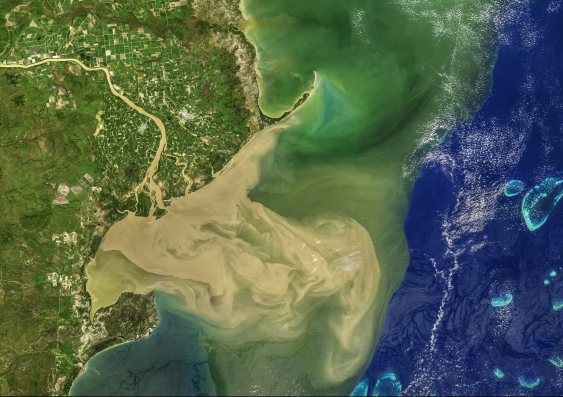UNSW Sydney awarded more than $2.8m for ARC Linkage Projects
Six new grants for industry collaboration will fund research in engineering, science, business, and the humanities.
Six new grants for industry collaboration will fund research in engineering, science, business, and the humanities.

The Australian Research Council (ARC) has awarded six UNSW researchers grants totalling more than $2.8 million in the latest round of Linkage Projects.
The funding will support projects ranging from next-generation ocean current forecasting to improve maritime safety to addressing regional Australia’s skills shortages and high-skill refugees’ employment.
The ARC Linkage Program promotes national and international long-term strategic research partnerships between researchers and business, industry, community organisations and other publicly funded research agencies.
UNSW Professor Nicholas Fisk, Deputy Vice-Chancellor, Research & Enterprise, congratulated the University’s six lead researchers and their teams on being awarded these highly innovative industry projects.
“With six ARC Linkage grants this round, UNSW is once again on the front foot of collaborative research, so fundamental to transforming industries, building communities, and strengthening the Australian economy. It’s fantastic to see such breadth in the major challenges being addressed, everything from nuclear fusion and satellite minoring of ocean currents, through to carers and caring, and refugee employment to address regional skill shortages,” Prof. Fisk said.
Dr Patrick Burr from UNSW Engineering has received $664,806. Dr Burr’s research aims to predict how materials used for shielding sensitive components in nuclear fusion reactors will degrade over time. This knowledge will be used to design advanced alloys for radiation shield, which are critical for the development of more compact fusion reactors design, with lower construction cost, and shorter assembly time.
Professor Francois Ladouceur from UNSW Engineering has received $559,018 for a project that focuses on laser-induced non-thermal fusion of hydrogen and boron 11 as a promising approach to reach practical sustainable energy generation. This industry supported proposal aims at establishing an experimentally proven analysis framework underpinning the future development of a viable hydrogen-boron fusion reactor.
Dr Jianfeng Xue from UNSW Canberra has received $450,000 for a project that aims to develop the mechanics of geosynthetic-reinforced flexible pavements as an urgent need for the Australian pavement industry to build more sustainable and economical roads. The outcomes will enable reliable prediction of reinforced pavement behaviour, leading to better-performing geosynthetic products and more resilient pavements, reduced material usage and damage in pavements, and less environmental impact and maintenance cost.
Associate Professor Emma Kirby from UNSW Arts, Design & Architecture has received $480,315 for a project that aims to advance understandings of how, why, when, and for whom caring ends, including the socio-cultural and relational factors. This project is significant in bringing together leading researchers and key carer-focused organisations, spanning service sectors, and moving across care relationships, life stages and contexts.
Professor Massimiliano Tani Bertuol from UNSW Canberra has received $354,811 for a project that focuses on small and medium-size enterprises producing food and beverages, aiming to determine whether refugee employment is a strategic resource that can alleviate chronic regional skill shortages, and can be integrated in immigration policy. The outcomes will contribute to reducing the problem of professional and trade-related skill shortages in rural Australia.
Associate Professor Shane Keating from UNSW Science has received $389,674. This project aims to measure upper ocean currents at scales of 10-100 km in Australia's marine estate using pioneering satellite radar technology. Expected outcomes of this research include validation of Surface Water and Ocean Topography (SWOT) data in Australian waters and merging of this into Bureau of Meteorology Ocean models with benefits such as improved ocean forecasts for maritime safety, search-and-rescue, spill modelling, and marine conservation.
More details about the ARC Linkage Projects are available on the ARC Website.